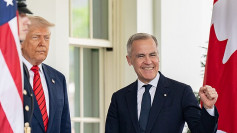In a rare and intense legal testimony, Prince Harry launched a fierce offensive against his perceived detractors, which included the U.K. government and media, RadarOnline.com reported.
Testifying in his phone hacking lawsuit, the Duke of Sussex lambasted the U.K. government as having reached an unprecedented "rock bottom." He also took the opportunity to rebuff long-standing rumors about his paternity, categorically dismissing the speculation that he was the biological son of James Hewitt.
This significant court appearance marked the first time a senior royal family member has testified since 1891, setting a historical precedent. Speaking under oath, the Duke openly expressed his profound disappointment in both the U.K. press and the government, describing their current state as being at a nadir.
The crux of the hearing revolved around allegations of phone hacking by U.K. media entity, the Daily Mirror. Prince Harry and a number of other witnesses were summoned to offer testimony on these accusations.
Prince Harry, who has previously been vocal about invasive media practices, confronted the damaging stories that had haunted his childhood and perpetuated false narratives about his life. Among these was the unfounded insinuation about his lineage, which led him to fear potential alienation from the royal family.
As part of his testimony, Harry claimed that the media had not only targeted him but also invaded the privacy of his former girlfriend, Chelsy Davy. He alleged that Davy's cell phone was hacked following his controversial decision to wear a Nazi costume for a Halloween event.
Additionally, the Duke of Sussex implicated the media in potentially illegal actions against his father, King Charles III. When questioned about his belief in his father's victimhood, Harry responded affirmatively, pointing to possible unlawful information gathering.
Prince Harry concluded his testimony with a sharp critique of the media, wondering aloud how much more harm they would cause before being held accountable. During cross-examination, he further elaborated on his remarks, accusing certain editors and journalists of causing significant distress and, in his personal experience, even death. His critique was broad, implying a systemic problem in the press industry.






